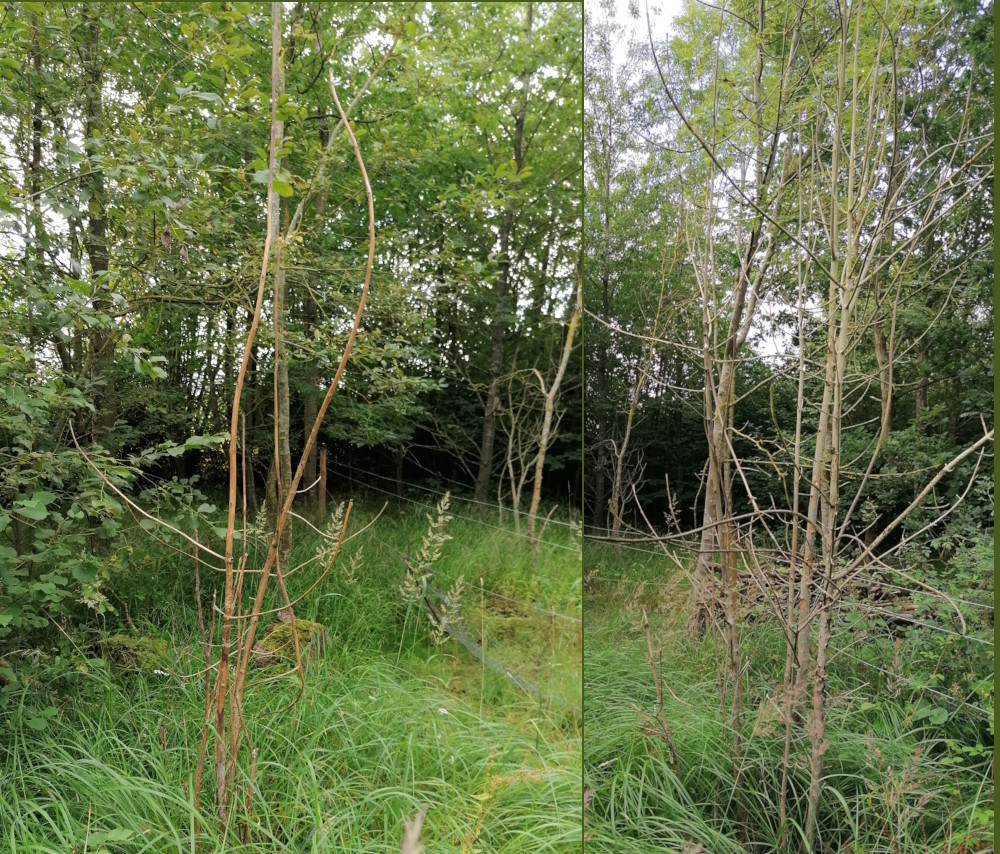Chalara ash dieback
These trees are dead but optimism remains

In June 2018 I published a post entitled “A tale of two ashes” in which I described the fate of two young ash trees I had coppiced the year before and which, after regrowing vigorously were succumbing, to different extents, to Chalara ash dieback – A tale of two ashes – Wassledine . I did say I would report back on their progress.
I happened to be cutting wood in that spot yesterday, preparing material for next year’s charcoal, and remembered these young ash and thought it about time to make that report.
Well, it’s not good news. You’ll see from the images above that both trees are now thoroughly dead despite my initial optimism that one of them looked healthy enough to survive the disease. Whilst their contemporaries, planted in 1999 are generally still alive, albeit some noticeably diseased, these two, seem to have become extra-susceptible, perhaps because they were coppiced.
This observation does tie in with other experience here in our woods as well as with observations of ash in other woods. That is, young trees seem to succumb more quickly than the more elderly and coppice regrowth seems to be particularly susceptible, especially in young trees. Why this might be is a matter of conjecture for me; perhaps someone somewhere has looked at what’s going on experimentally – please let me know if you know.
So, a dismal picture for these two trees in particular. My five year old post was fairly optimistic about British ash’s future and despite the demise of these two previously healthy trees and the state of ash in all of the UK I’ve visited in the last few years, that optimism remains. Ash has grown so well from seed in the UK historically that there must be very significant genetic diversity in the population. Together with the millions of new seedlings still being produced each year, there has surely to be some individuals out there that, by chance have immunity to Chalara. At least that’s the way natural selection is supposed to work!
Time will tell.
